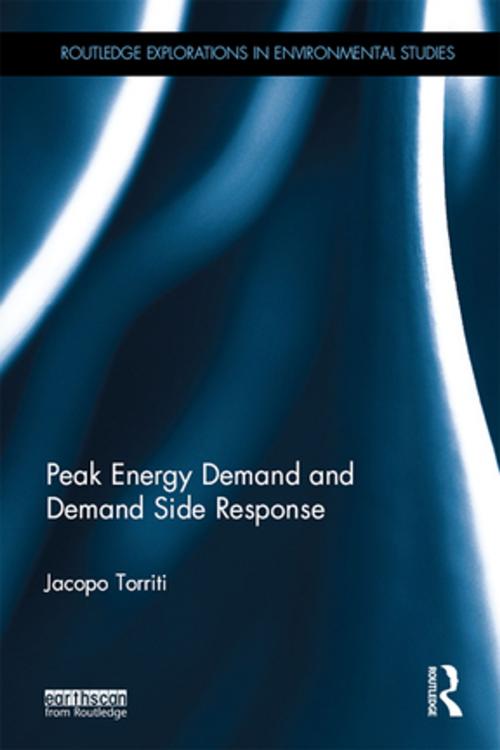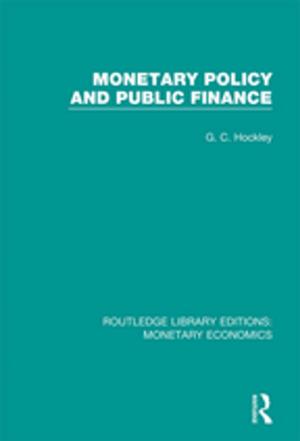Peak Energy Demand and Demand Side Response
Business & Finance, Economics, Sustainable Development, Nonfiction, Social & Cultural Studies, Political Science, Government, Public Policy| Author: | Jacopo Torriti | ISBN: | 9781317704478 |
| Publisher: | Taylor and Francis | Publication: | July 16, 2015 |
| Imprint: | Routledge | Language: | English |
| Author: | Jacopo Torriti |
| ISBN: | 9781317704478 |
| Publisher: | Taylor and Francis |
| Publication: | July 16, 2015 |
| Imprint: | Routledge |
| Language: | English |
With different intensities, depending on the season, every morning and evening of any weekday there are the same peaks in electricity demand. Peaks can bring about significantly negative environmental and economic impacts. Demand Side Response is a relatively recent solution in Europe which has the potential to reduce peak demand and ease impending capacity shortages.
Peak Energy Demand and Demand Side Response presents evidence on a set of Demand Side Response activities, ranging from price-based to incentive-based programmes and policies. Examples are drawn from different programmes for both residential and non-residential sectors of electricity demand, including Time of Use tariffs, Critical Peak Pricing Automated Demand Controllers and Ancillary Services. The book also looks at the actual energy saving impacts of smart meters, the activities which constitute peak demand and the potential opportunities associated with European smart grids and Capacity Markets.
This is the first book presenting comprehensive analysis of the impacts, cost benefits and risks associated with Demand Side Response programmes and policies. It should be of interest to students, scholars and policy-makers in the areas of energy, environmental economics and applied economics.
With different intensities, depending on the season, every morning and evening of any weekday there are the same peaks in electricity demand. Peaks can bring about significantly negative environmental and economic impacts. Demand Side Response is a relatively recent solution in Europe which has the potential to reduce peak demand and ease impending capacity shortages.
Peak Energy Demand and Demand Side Response presents evidence on a set of Demand Side Response activities, ranging from price-based to incentive-based programmes and policies. Examples are drawn from different programmes for both residential and non-residential sectors of electricity demand, including Time of Use tariffs, Critical Peak Pricing Automated Demand Controllers and Ancillary Services. The book also looks at the actual energy saving impacts of smart meters, the activities which constitute peak demand and the potential opportunities associated with European smart grids and Capacity Markets.
This is the first book presenting comprehensive analysis of the impacts, cost benefits and risks associated with Demand Side Response programmes and policies. It should be of interest to students, scholars and policy-makers in the areas of energy, environmental economics and applied economics.















